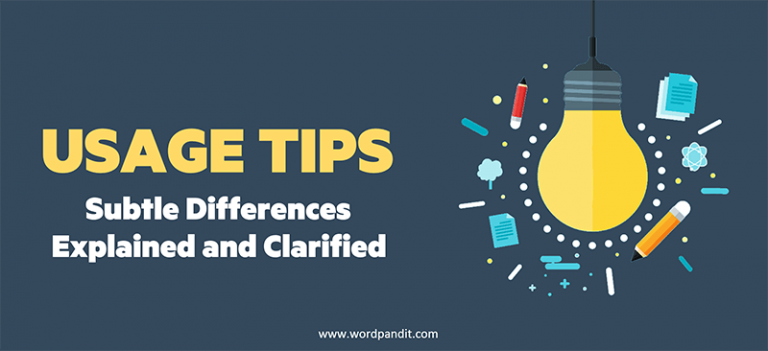Allusion, Delusion, Elusion & Illusion ✨📚
Introduction
Have you ever been caught off guard by the sneaky similarity of certain words? 🤔 Words that sound alike but mean entirely different things can easily lead to confusion and even embarrassment. Today, we’re untangling the web of allusion, delusion, elusion, and illusion. These words often trip people up because they have similar sounds but distinct meanings. If you’ve ever felt baffled by these words, you’re not alone—and that’s exactly why it’s important to master their differences. Imagine referring to a magician’s trick as a “delusion” instead of an “illusion” during a dinner party. 🥴 It’s time to prevent such awkward moments with a clear guide! 📝
Confusing word pairs like these are common in the English language, and they can lead to hilarious misunderstandings 😂—or even major mistakes—if used incorrectly. By getting a handle on these words, you’ll be able to express yourself more clearly and confidently. 💪 Plus, learning the distinctions between tricky terms can be a fun challenge that sharpens your language skills. 🧠 So, let’s dive in and untangle the confusion once and for all! 🏊♂️
Allusion vs. Delusion vs. Elusion vs. Illusion
-
Allusion (uh-LOO-zhun): 🔍 This word refers to a subtle or indirect reference. When someone mentions Romeo and Juliet in a conversation about love, they are making an allusion to Shakespeare’s famous play. 🎭
An allusion can be a powerful tool in writing and conversation, helping to create a shared understanding or evoke certain emotions without being overt. ✨ Authors, speakers, and even advertisers often use allusions to draw on the reader’s or listener’s existing knowledge and create deeper connections. 🤝
Example: The movie’s dialogue included several allusions to classic literature, adding a layer of depth to its plot. 🎬
Synonyms: Reference, hint, mention. 📝
Antonyms: Declaration, announcement. 🚨 -
Delusion (dih-LOO-zhun): 😵💫 Delusion refers to a false belief held despite evidence to the contrary, often linked to mental health. If someone believes they have superpowers, despite all evidence, that’s a delusion. 🦸♂️
Delusion can be a serious issue, especially when it affects someone’s ability to function in daily life. 🚑 It’s a term often used in psychological contexts, but it can also be used more casually to describe someone who is clearly mistaken. Understanding delusion is key to recognizing when someone is not perceiving reality accurately. 🔍
Example: He was under the delusion that he could fly, which made his friends worry. 😟
Synonyms: Misbelief, misconception, illusion (in the sense of a false belief). 🤔
Antonyms: Reality, truth, certainty. ✅ -
Elusion (ih-LOO-zhun): 🏃♂️ Elusion means the act of evading or escaping. Picture someone slipping through a crowded market to avoid being seen—that’s elusion. 🐾
Elusion is often about skill and cleverness—think of a character in an action movie who manages to avoid capture by outsmarting their pursuers. 🎥
Example: The cat’s elusion of the dog was impressive, darting under fences and through narrow gaps. 🐈⬛🐕
Synonyms: Escape, evasion, avoidance. 🚪
Antonyms: Capture, confrontation. 🛑 -
Illusion (ih-LOO-zhun): 🎩✨ An illusion is something that deceives the senses or mind. A magician’s act is filled with illusions, tricking the audience into seeing what isn’t real. 🃏
Example: The desert’s shimmering heat created an illusion of water on the horizon. 🌊
Synonyms: Mirage, trick, hallucination. 🔮
Antonyms: Reality, truth, fact. 🌍
Comparison and Contrast
– Allusion and illusion often cause the most confusion. Remember: allusion is a reference, while illusion is a deceptive appearance. 🤷♂️
– Delusion and illusion both involve something false, but a delusion is a false belief, while an illusion is a misleading perception. 🔄
– Elusion is entirely different—it’s about evading or escaping something. 🚀
Mnemonic Devices
- Allusion: Reference to something known. 📚
- Delusion: False belief. 🌀
- Elusion: Escaping capture. 🚪🏃♀️
- Illusion: Trick of the senses. 🌈✨
Related Words
- Affect vs. Effect: Affect influences, effect is the result. 🔄
- Elicit vs. Illicit: Elicit means to draw out, illicit means illegal. 🚫
- Complement vs. Compliment: Complement completes, compliment praises. 🌟
Conclusion
Now that you’ve explored these words, their meanings should be much clearer. 💡 Understanding these distinctions helps you communicate with precision and avoid common mistakes. Keep practicing, and you’ll master even the trickiest words! 📖✨
Test Your Knowledge: Confusing Words Quiz
1. The novelist made an ___ to Greek mythology in her story. ✍️📖
2. The magician’s trick was just an elaborate ___. 🎭🪄
3. Delusion refers to a clever escape. ❓🏃
4. Identify the synonym for ‘Allusion’. 📖
5. The con artist relied on an ___ to trick his victims. 🎩🕵️
6. Which of the following sentences correctly uses the word ‘Elusion’? 🏃♂️
7. Despite his ___, he couldn’t maintain the ___ for long. 🌀💨
8. Which word is derived from the Latin meaning ‘to deceive’ or ‘mock’? 🎓📜
9. An illusion can be used to describe a false belief. ❓🚫
10. The escape artist’s performance was an impressive ___ of reality, making it seem effortless to ___ the authorities. 🎭✨🚨













